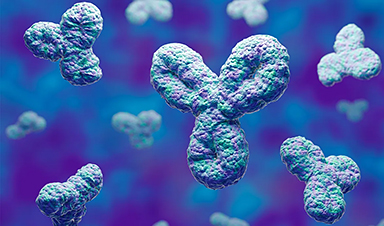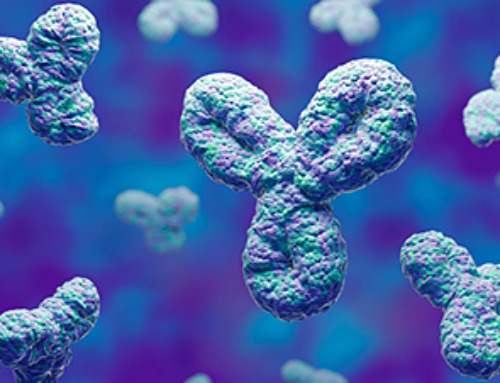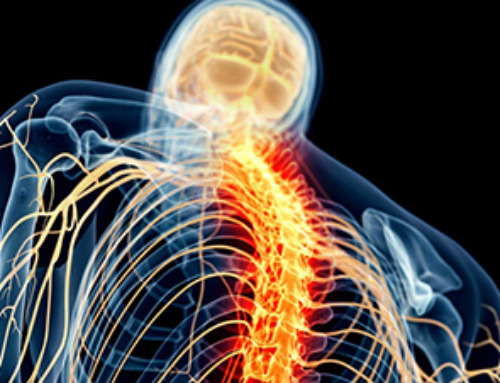A case of lead poisoning due to Ayurvedic medicine use demonstrates the importance of patient history in diagnosis and the need for public health collaboration to prevent similar risks.
An article in CMAJ (Canadian Medical Association Journal) highlights a case of lead toxicity from Ayurvedic medicines in a young woman, and the complexity in diagnosing the rare condition.
“Given that lead toxicity is uncommon and its presentation nonspecific, patients are often seen by many health care providers before the diagnosis is made,” writes Dr. Julian Gitelman, Dalla Lana School of Public Health, University of Toronto, with coauthors. “A careful exposure history is essential to suggest the diagnosis.”
Ayurvedic medicine, also known as Ayurveda, is one of the world’s oldest holistic healing systems. Originating in India over 3,000 years ago, it is based on the belief that health and wellness depend on a balance between the mind, body, and spirit. Ayurveda emphasizes the importance of maintaining this balance through diet, herbal treatments, meditation, yoga, and other lifestyle practices. Its approach to health is tailored to an individual’s unique constitution or “dosha,” aiming to treat the root cause of symptoms and promote long-term well-being.
Patient Case and Diagnosis
The patient, a 39-year-old woman, visited the emergency department 3 times in 6 weeks for abdominal pain, constipation, nausea and vomiting. On her third visit, she was admitted to the hospital for anemia and possible gastrointestinal bleeding. Numerous, invasive investigations failed to reveal a cause of her symptoms.
At a follow-up visit weeks later, she reported having taken Ayurvedic medicines daily for more than a year to treat infertility. Her blood lead level was high at 55 µg/dL, compared with a normal level of less than 2 µg/dL. The patient stopped taking the Ayurvedic treatments and began chelation therapy. Her blood lead level decreased and her symptoms resolved.
Public Health Response and Investigation
Once the diagnosis of lead toxicity was made, the medical team contacted Public Health Ontario (PHO), which tested 17 different pill samples provided by the patient. After testing revealed high levels of lead in most of the pills, PHO involved the local public health unit, Toronto Public Health, and Health Canada, as it regulates natural health products. A joint investigation of the Ayurvedic clinic resulted in the seizure of hundreds of pills due to noncompliance with the Natural Health Products Regulations. Both Health Canada and Toronto Public Health issued public advisories to warn people that the products from this specific business were health hazards.
The authors emphasize the importance of communication and collaboration between clinicians and public health to minimize the health risk of lead in consumer products. “A recent systematic review of case reports on lead poisoning found traditional or herbal medications to be a common cause.” the authors write. “Heavy metals are sometimes intentionally added for their perceived healing properties.”
“When consumer products may be contaminated with lead, or when lead exposure is linked to sources in the community, involving public health can facilitate broader actions to reduce and prevent exposures to other people at risk,” they conclude.
Reference: “Lead toxicity from Ayurvedic medicines” by Julian Gitelman, Howard An, Vincent Spilchuk and JinHee Kim, 8 August 2024, Canadian Medical Association Journal.
DOI: 10.1503/cmaj.230592
News
Specially engineered antibody delivers RNA therapy to treatment-resistant tumors
Elias Quijano, PhD; Diana Martinez-Saucedo, PhD; Zaira Ianniello, PhD; and Natasha Pinto-Medici, PhD, there are 25 other contributors, most from Yale's Department of Therapeutic Radiology and from the departments of genetics, molecular biophysics and [...]
Vaccinated women face fewer cervical cancer risks
New data from Denmark shows the HPV vaccine’s powerful long-term impact, while also revealing why cervical cancer screening is still essential. A Danish study published in the journal Eurosurveillance reports that women who received the human [...]
3D-printed implant offers a potential new route to repair spinal cord injuries
A research team at RCSI University of Medicine and Health Sciences has developed a 3-D printed implant to deliver electrical stimulation to injured areas of the spinal cord, offering a potential new route to [...]
Nanocrystals Carrying Radioisotopes Offer New Hope for Cancer Treatment
The Science Scientists have developed tiny nanocrystal particles made up of isotopes of the elements lanthanum, vanadium, and oxygen for use in treating cancer. These crystals are smaller than many microbes and can carry isotopes of [...]
New Once-a-Week Shot Promises Life-Changing Relief for Parkinson’s Patients
A once-a-week shot from Australian scientists could spare people with Parkinson’s the grind of taking pills several times a day. The tiny, biodegradable gel sits under the skin and releases steady doses of two [...]
Weekly injectable drug offers hope for Parkinson’s patients
A new weekly injectable drug could transform the lives of more than eight million people living with Parkinson's disease, potentially replacing the need for multiple daily tablets. Scientists from the University of South Australia [...]
Most Plastic in the Ocean Is Invisible—And Deadly
Nanoplastics—particles smaller than a human hair—can pass through cell walls and enter the food web. New research suggest 27 million metric tons of nanoplastics are spread across just the top layer of the North [...]
Repurposed drugs could calm the immune system’s response to nanomedicine
An international study led by researchers at the University of Colorado Anschutz Medical Campus has identified a promising strategy to enhance the safety of nanomedicines, advanced therapies often used in cancer and vaccine treatments, [...]
Nano-Enhanced Hydrogel Strategies for Cartilage Repair
A recent article in Engineering describes the development of a protein-based nanocomposite hydrogel designed to deliver two therapeutic agents—dexamethasone (Dex) and kartogenin (KGN)—to support cartilage repair. The hydrogel is engineered to modulate immune responses and promote [...]
New Cancer Drug Blocks Tumors Without Debilitating Side Effects
A new drug targets RAS-PI3Kα pathways without harmful side effects. It was developed using high-performance computing and AI. A new cancer drug candidate, developed through a collaboration between Lawrence Livermore National Laboratory (LLNL), BridgeBio Oncology [...]
Scientists Are Pretty Close to Replicating the First Thing That Ever Lived
For 400 million years, a leading hypothesis claims, Earth was an “RNA World,” meaning that life must’ve first replicated from RNA before the arrival of proteins and DNA. Unfortunately, scientists have failed to find [...]
Why ‘Peniaphobia’ Is Exploding Among Young People (And Why We Should Be Concerned)
An insidious illness is taking hold among a growing proportion of young people. Little known to the general public, peniaphobia—the fear of becoming poor—is gaining ground among teens and young adults. Discover the causes [...]
Team finds flawed data in recent study relevant to coronavirus antiviral development
The COVID pandemic illustrated how urgently we need antiviral medications capable of treating coronavirus infections. To aid this effort, researchers quickly homed in on part of SARS-CoV-2's molecular structure known as the NiRAN domain—an [...]
Drug-Coated Neural Implants Reduce Immune Rejection
Summary: A new study shows that coating neural prosthetic implants with the anti-inflammatory drug dexamethasone helps reduce the body’s immune response and scar tissue formation. This strategy enhances the long-term performance and stability of electrodes [...]
Scientists discover cancer-fighting bacteria that ‘soak up’ forever chemicals in the body
A family of healthy bacteria may help 'soak up' toxic forever chemicals in the body, warding off their cancerous effects. Forever chemicals, also known as PFAS (per- and polyfluoroalkyl substances), are toxic chemicals that [...]
Johns Hopkins Researchers Uncover a New Way To Kill Cancer Cells
A new study reveals that blocking ribosomal RNA production rewires cancer cell behavior and could help treat genetically unstable tumors. Researchers at the Johns Hopkins Kimmel Cancer Center and the Department of Radiation Oncology and Molecular [...]





















